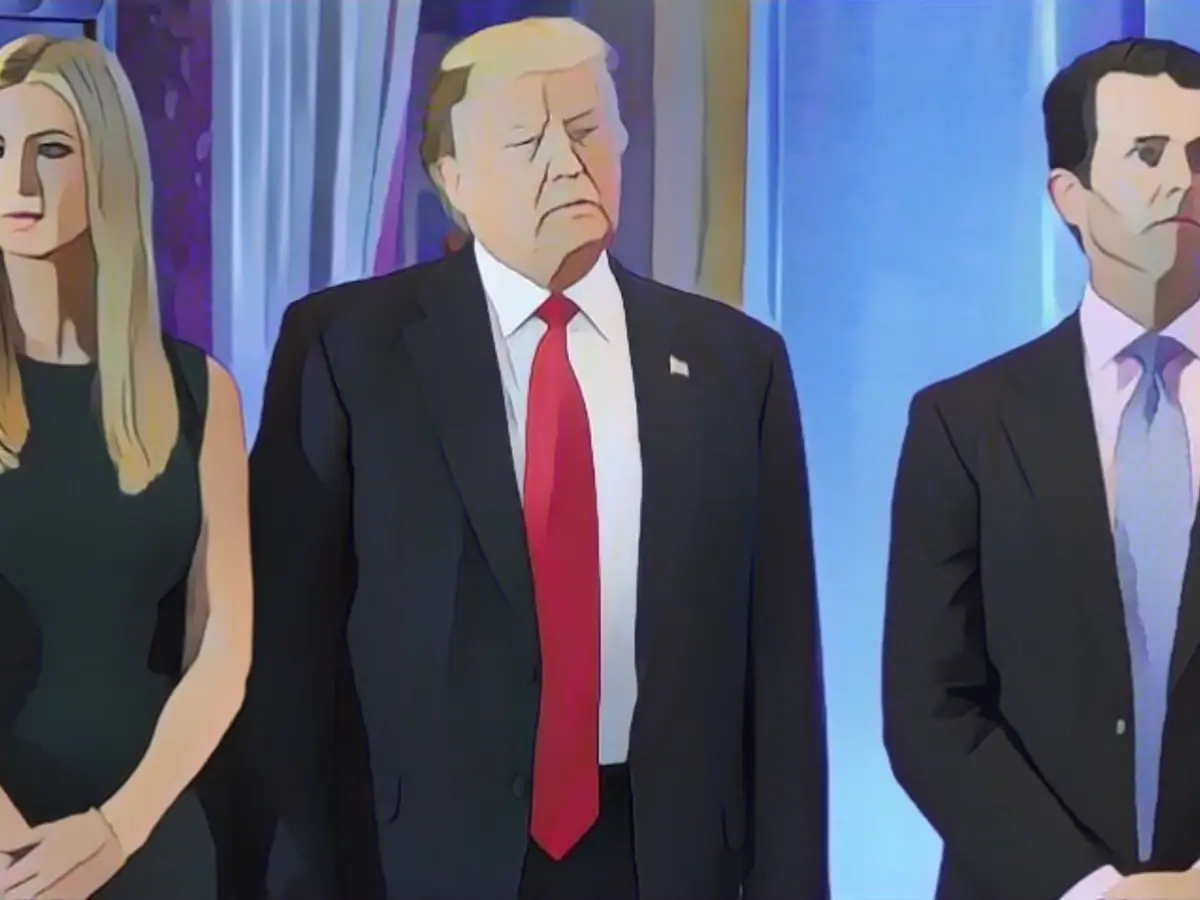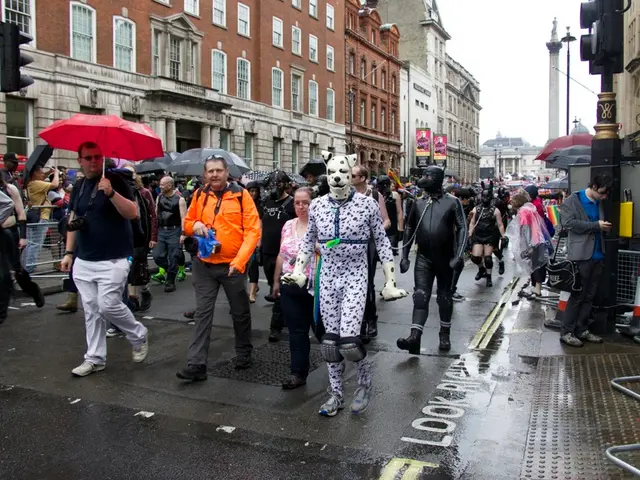In recent developments, two court rulings have dealt a serious blow to former President Trump and his family.
First, a federal judge in Washington D.C., Amit P. Mehta, granted permission to proceed with a lawsuit against Trump, citing his potential knowledge of extremist organizations, such as the Proud Boys and Oath Keepers, and the inciting nature of his speeches leading up to the January 6th Capitol riots[1]. Mehta argued that while Trump enjoyed certain immunity as a public figure, his actions could be seen as advocating collective action, which would not qualify for such protection[1]. The lawsuit alleges that the riots caused physical and psychological harm to Congress members and police officers[1].
Meanwhile, another court in Manhattan allowed Trump and his two adult children, Ivanka and Donald Trump Jr., to be deposed in relation to their business dealings. Judge Arthur Engoren of the New York State Supreme Court also ordered the appearance of three individuals before prosecutors to investigate potential business fraud[1].
The family's wealth and political influence have long been the subject of controversy. With their children elevated to positions of power within the Trump Organization, it was crucial they understood the inner workings of the family business, which relied on the image of massive riches and success embedded in Trump's identity[2].
Falsely promoting his financial success through statements like his claim to be the "biggest real estate developer in New York," Trump capitalized on the hype, raising his profile to eventual presidential status[2]. His children's role in this image-making may have compelled them to stay informed on the matter, as evidenced by investigations into their business transactions and financial reports[2].
At issue are alleged inflated claims concerning real estate properties and assets. Trump's statement that his New York City mansion was nearly triple its actual size, or his assertion that a suburban property he owned contained seven undeveloped villas, have been scrutinized[2]. The Trump Organization has a vast debt of over $400 million personally guaranteed by Trump, making the accuracy of his financial statements critically important[2].
The involvement of Mazars USA, the accounting firm that provided Trump with financial reports, has further complicated the situation. In response to the requests of investigators, Mazars USA warned Trump not to rely on the reports and discontinued its relationship with the organization[2]. The information provided by Mazars USA may impact the value of loans, contracts, insurance policies, and the tax status of the organization[2].
As investigations continue, a Congressional committee has called upon the government to consider terminating a lease for a hotel operated by Trump in the former Washington Post Office[2]. This action could potentially block Trump's plan to sell the lease for $370 million[2]. The committee stated, "Nobody should be rewarded for providing false or misleading information to the government or attempting to profit from the presidency."[2]
In response to the District of Columbia court ruling, Trump released a statement defending his finances while refusing to provide further details, drawing criticism for his evasive tactics[1]. The Manhattan case, on the other hand, focuses on direct business dealings, which require the Trump family to provide answers to investigators' probing questions[1].
When contemplating the impact of these rulings, it is important to recognize the broader context surrounding the Trump administration's policies on extremism, domestic terrorism, and economic sanctions[3]. These court actions represent an ongoing challenge to the legal landscape, as the former president continues to face scrutiny for his actions while in office.
Source:
Enrichment Data:
- Impact on Extremist Groups:
- The Trump administration's pardons and purges have been criticized for eroding efforts to combat domestic terrorism. This has contributed to a resurgence of far-right extremism and increased concerns about future violent activities[4].
- Executive Orders and DEI Programs:
- The Trump administration's executive orders targeting Diversity, Equity, and Inclusion (DEI) programs have been met with backlash from nonprofit organizations and human rights activists. They argue that these orders represent a scapegoating of certain groups based on gender identity and systemic racism accusations[4].
- Designation of Cartels as Terrorist Organizations:
- Critics argue that the Trump administration's decision to designate foreign cartels as terrorist organizations sets a dangerous precedent, potentially causing chaos in Latin American regions by deterring businesses and triggering a spiral of crackdowns, violence, and displacement of local communities[5].







